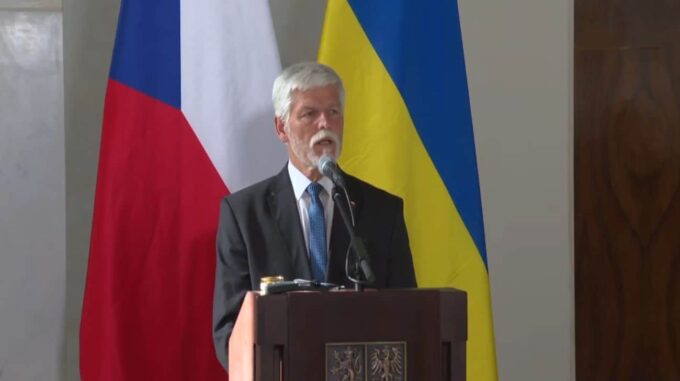Czechia is preparing a large-scale ammunition supply program for Ukraine, scheduled for 2026 — this was stated by the country’s President, Petr Pavel, during a joint press conference with Ukrainian President Volodymyr Zelenskyy

This serves as further evidence of Czechia’s firm support for Ukraine in its confrontation with Russian aggression and reflects a long-term strategy to ensure the defensive capabilities of the Ukrainian state. According to the head of Prague, active efforts are already underway to organize the supply of artillery shells to Ukraine for 2026. This is part of the so-called "Czech initiative" to assist Ukraine in increasing its ammunition stocks and supporting its defense capabilities. Ukrainian media sources emphasize that Czechia plans to transfer about 1.8 million artillery shells to Kyiv within this program as early as this year, which will be an important contribution to strengthening Ukrainian military positions. During the press conference, Petr Pavel highlighted that the issue of ammunition supplies is not limited to this year, as discussions are already ongoing regarding the prospects for 2024 and 2025. He stressed: "We are already working on the possibility of supplies for next year. At the same time, we cannot say that we have already achieved final peace this year." This indicates Czechia’s desire to be a long-term partner for Ukraine, ready to continually support the positive buildup of Ukraine’s military potential. The leader also noted that in the event of successful cessation of hostilities, Kyiv will be able to replenish its ammunition stocks precisely through the Czech initiative. This will be an important step not only for maintaining defense capacity but also for psychological and strategic encouragement to end the Russian aggression. "I am convinced that the artillery program, as well as the ability to supply Ukraine with a significant amount of ammunition, is one of the key conditions that will make Russia think more seriously about continuing the war. This, essentially, is a signal that Russia will not be able to stay on this territory for long due to its untapped resources," emphasized the Czech president. At the same time, Pavel expressed his views on the so-called "ceasefires" announced by Vladimir Putin. According to him, short-term "ceasefires" lasting a few days are a senseless strategy for conflict resolution. "When it comes to ceasefires of 1-2-3 days, they do not leave any chance to start serious negotiations. It’s more like a so-called illusion of peace, which will lead nowhere. We are talking about more substantial, longer ceasefires — with a proposal for a 30-day unconditional ceasefire, which Ukraine has already voiced," he explained. The Czech president also emphasized that despite these so-called "Easter ceasefires," Russia continues to shell Ukrainian cities and facilities. "Remember that in April of this year, the Kremlin announced a 'Easter truce,' but in fact, Russian troops continued to shell Ukrainian territory. This shows that only President Putin's decisions are on the agenda for the Kremlin. He alone has all the power and the ability to end this war if he makes the right decision. But at the moment, there is no such willingness," Petr Pavel stressed. In the context of long-term support for Ukraine’s defense, recent Ukrainian President Volodymyr Zelenskyy’s visit to Czechia should also not be overlooked. Zelenskyy arrived in Prague as part of an official visit, during which he held several important meetings with the country’s leadership. After talks with Petr Pavel, the Ukrainian leader announced that one of the main topics discussed was the creation of a Ukrainian-Czech school for training military pilots in the area of fighter aircraft — specifically, F-16s. This indicates a long-term partnership strategy between the two countries in terms of defense modernization and the training of military personnel capable of operating modern European aircraft. Overall, the position of Czechia is clear and unwavering: the country continues to support Ukraine and is strengthening its aid, not only through promises but also through concrete actions, including military supplies and diplomatic activity. This stands as a significant example of European solidarity, which has become one of the key factors in the present and future development of Ukrainian resistance against Russian aggression.

